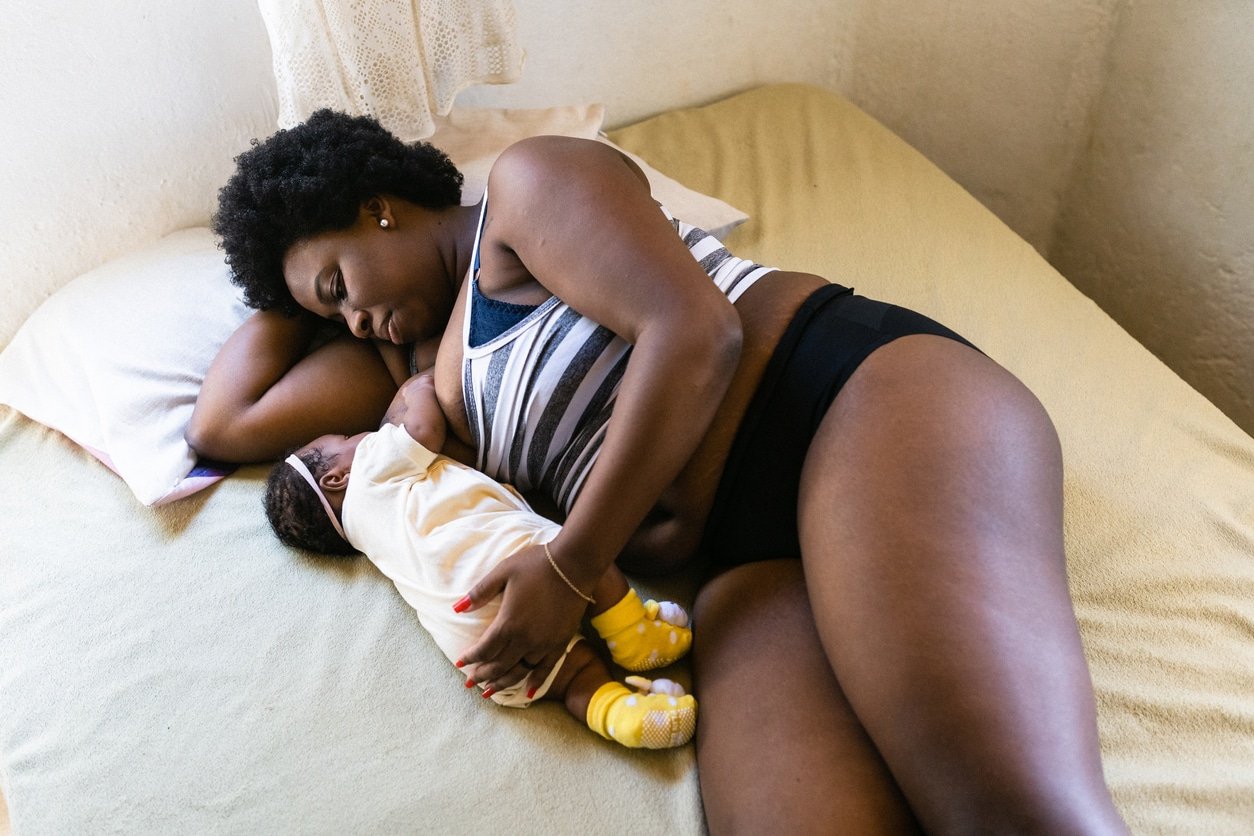The cost of having a baby is expensive. Considering labor and delivery costs, health insurance, and childcare expenses, it costs thousands of dollars to bring a child into this world. That cost can be overwhelming and difficult for many families.
Having a baby can cost between $21,000 and $37,000 in the first year, depending on the state, according to a study by QuoteWizard by Lending Tree.1 Here’s an in-depth look at these costs and what parents can expect in some states.
The Most Expensive States to Have a Baby
According to the study, the top 10 most expensive states to have a baby are:1
- Alaska: $37,261
- Massachusetts: $35,496
- New York: $35,457
- Wisconsin: $32,937
- New Jersey: $32,250
- California: $31,954
- Vermont: $30,969
- Connecticut: $30,872
- Illinois: $30,679
- Wyoming: $30,293
The national average for childbirth expenses is $11,687, with childcare averaging $10,075 and health insurance for the average family at $5,227, according to the study.1 Indeed, there are states where costs are much higher, and others come in quite a bit lower.
Most Expensive State: Alaska
According to the survey, Alaska is the most expensive state to have a baby in because the total cost, including health insurance, childcare, and childbirth expenses, is more than $37,000. This considers insurance costs of $6,864 and childbirth expenses of $19,294.1
Without insurance in Alaska, Policy Scout reports, it could cost as much as $20,000 for a vaginal birth and a whopping $28,000 for a C-section.2 The Economic Policy Institute breaks things down further, explaining that infant care in Alaska averages $12,120 per year, which is a little more than $1,000 per month. But infant care costs are staggering. It costs $4,899 more annually in Alaska to take care of an infant than in-state tuition for a four-year public college. That is nearly 68% more for childcare than education.
Childcare is a burden for many families in Alaska. For example, childcare for two children, an infant and a 4-year-old, is more than $22,000 annually. According to EPI, that is 3.6% more than the average rent in the state. Breaking it down, a minimum wage worker in Alaska would need to work full-time for 30 weeks just to pay daycare costs for one infant.3
Next Most Expensive States: Massachusetts and New York
Massachusetts
The second most expensive state to have a baby is Massachusetts, where it is just above $35,000 to have an infant. The average cost of health insurance is less at $4,196 per year, and childbirth is $13,296.1 Policy Scout reports that a vaginal birth in Massachusetts is approximately $7,700 with insurance and $15,500 without insurance. Parents who experience a C-section can expect to pay around $11,000 with insurance and $19,900 without insurance.2
While overall, it is less expensive to have a child than in Alaska, Massachusetts childcare costs are astronomical. According to EPI, it costs $20,913 for infant care, which is a whopping $1,743 per month. Compared to in-state tuition at a four-year public college, infant care is 67% more expensive at $8,134. According to the report, infant care would take up 22.7% of a median family’s income in the state.3 The U.S. Department of Health and Human Services says that childcare is considered affordable if it costs no more than 7% of a family’s income.4 If this standard measures Massachusetts families, only 5% can afford childcare.
New York
If you are in New York, the cost of having a baby is nearly identical to Massachusetts, at $35,000.1 Health insurance here is the costliest of the top three expensive states to have a baby at $6,908, and childbirth expenses are nearly $15,000. Policy Scout lists uninsured birth costs at $10,900 for a vaginal birth and $14,900 for a C-section.2
EPI reports that infant care in New York is around $1,238 a month, totaling $15,394 per year. Infant care costs in New York are 93.9% ($7,456) more than in-state tuition for a four-year public college. In New York City, where the minimum wage is $15, it would take a worker 26 weeks of working full-time to cover the annual cost of infant care. Statewide, infant care takes up 22% of a median family’s income, making infant care affordable for only 9.4% of New Yorkers.3
Most Affordable States to Have a Baby
There is relief in some states, where costs are significantly lower. Arkansas, Alabama, and Mississippi are the most affordable states to have a baby. Let’s look at the cost breakdown of these three:
Arkansas
For new parents looking to save money, you might want to move to Arkansas. It’s the most affordable state to have a baby, where annual costs are just under $21,000 a year.1 Health insurance is typically around $4,800, and childbirth expenses are approximately $9,600. While the costs are substantially lower, an uninsured vaginal birth in Arkansas costs $10,000, and a C-section is almost $14,000.2 Childcare in Arkansas averages $574 per month. That is just $1,297 less than in-state tuition for a four-year in-state college. The childcare costs in Arkansas are 20.9% less than the average rent. For the average family in Arkansas, infant childcare would eat up nearly 15% of their yearly income.3
Alabama
The next least expensive state to have a baby is Alabama, where it costs an average of $21,208 to have a baby.1 Alabama’s insurance is on the higher side, at nearly 6,500 a year, and average childbirth costs are around $9,100 for those with health insurance. An uninsured vaginal birth costs around $9,500, and a C-section will cost approximately $13,500.2 EPI reports that infant care in Alabama is typically $500 per month, at $6,000 per year. Infant care is 38.9% less than in-state tuition for a four-year public college, at $3,900, but it is 65% of an average resident’s rent. The average Alabama resident raising an infant would use close to 12% of their annual income on childcare.3
Mississippi
Mississippi is very close to Alabama, costing about $500 more, just under $22,000.1 Those expenses are a combination of health insurance, with an average cost of $5,632 per year, and moderate childbirth costs of $10,640. Those numbers are higher for an uninsured birth at around $9,700 for a vaginal delivery and $15,100 for a C-section.2 Looking further into childcare costs, EPI reports that an average Mississippian will pay about $453 per month for infant childcare. The number is just under $5,500 annually. It costs 59% of an average resident’s rent to provide childcare. Childcare expenses are $2,543 less than in-state tuition at a four-year public college. In Mississippi, the annual cost of college is $7,980, housing is $9,906, 4-year-old care is $4,784, and infant care is $5,436.3
Unexpected Expenses Not Included
While these costs to have a baby may seem high, they only include births without complications. QuoteWizard’s report warns that parents must think ahead and be prepared for unexpected expenses such as an amniocentesis diagnostic test and additional ultrasounds. While many of these things are covered by insurance, many may not be, and if you are uninsured, you can expect to pay much more.
An expecting family should ask their health insurance provider several essential questions, such as:5
- What can I expect to pay for copays for visits and other services during pregnancy?
- What does my policy’s prenatal coverage include?
- What is my deductible, and when is it applied?
- What hospital coverage does my plan cover?
- Does my plan cover midwife, doula, or lactation services?
Northwestern Mutual recommends that before having a baby, a parent should have at least $20,000 in the bank.6 While this is a lofty goal, it is certainly not unattainable for many parents. The financial institution recommends saving 10% of your pay, which can be made easier by setting up automatic transfers from your bank into a separate account just for baby expenses. They also recommend having debt as under control as possible.
Raising a family is a beautiful thing. While it is not always possible to be prepared for every expense, becoming familiar with what things cost in your area can certainly help. Listen to the experts and heed their advice. Every penny adds up when raising a child, so it just makes sense to save money when you can. You will never regret being informed.

 PARENTING TIPS
PARENTING TIPS PREGNANCY
PREGNANCY BABY CARE
BABY CARE TODDLERS
TODDLERS TEENS
TEENS HEALTH CARE
HEALTH CARE ACTIVITIES & CRAFTS
ACTIVITIES & CRAFTS


